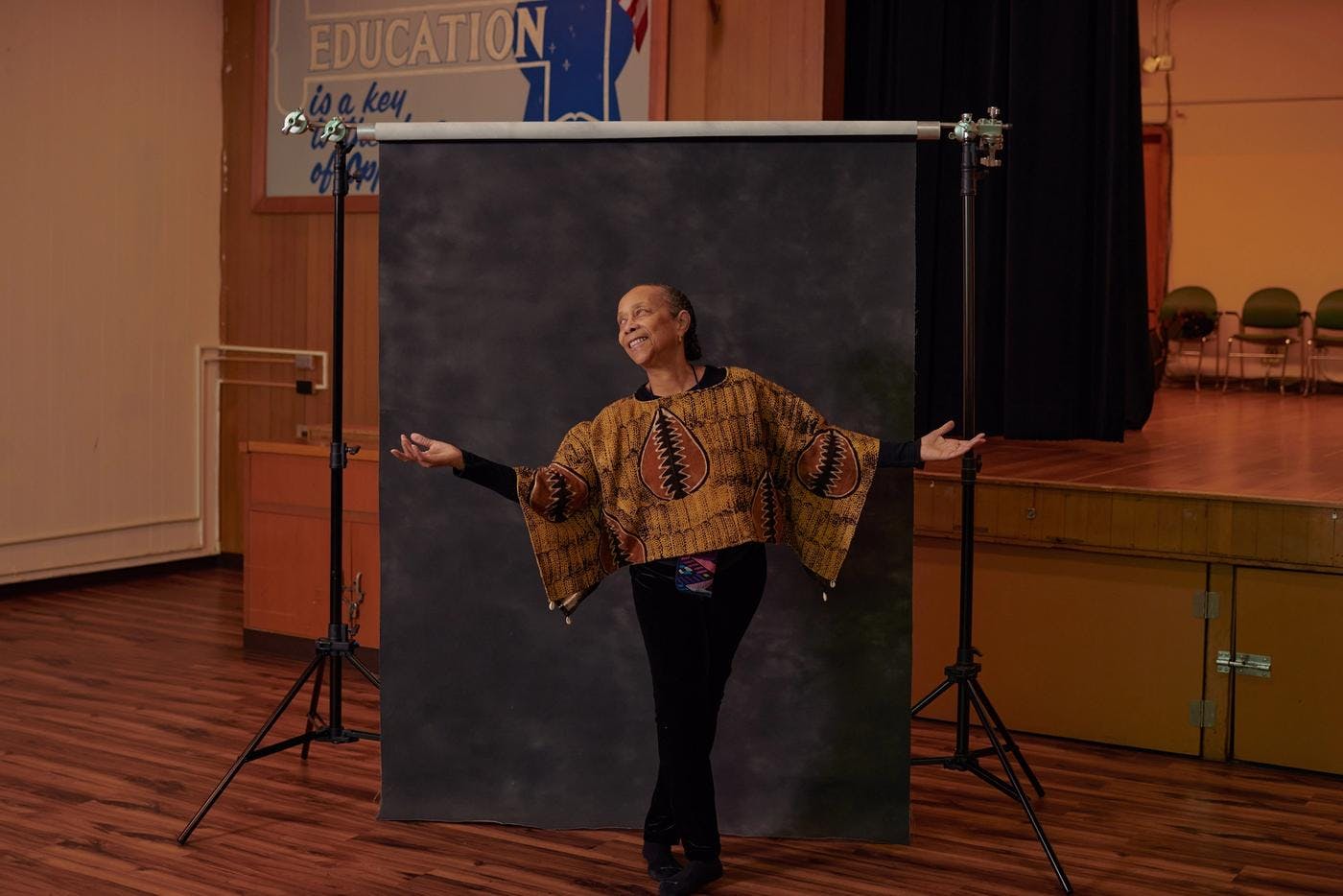
Edna Daigre
A dance teacher beloved by generations of Seattle students, this longtime movement maven believes breath is life.
Sixteen years after he first discovered tap, this Seattle dancer is finding his place in the lineage of an art form with deep roots in the Black community.
by Jas Keimig / May 31, 2024
On a recent episode of So You Think You Can Dance, Seattle tap dancer Cipher Goings appeared before the judging panel in a made-for-TV room with poise beyond his 23 years.
Auditioning to a portion of Burna Boy’s Afrobeat track “On Form,” Goings gracefully spun, shook and leapt across the wood floor, his rapid-fire taps building upon the song’s rhythmic complexity, adding beats and pauses with the balls and heels of his feet. The judges ultimately (and unwisely) decided to pass on Goings, but his appearance on SYTYCD marked an important moment for the young tap dancer: representing his community on a national platform.
“It’s nice because I don’t feel like I have always seen a lot of people from my city, especially or even more specifically Black people from my city, doing these things,” Goings says of his time on the program. “So it’s really cool to be walking through these doors and leaving them open for the next young people who look like me.”
Goings, who also uses the stage name Cipher Divine, is Seattle’s preeminent ambassador for tap, bringing his energetic, magisterial understanding of the form to the stage and the community. Trained in ballet, modern and hip-hop, Goings specializes in “rhythm tap” — which focuses on the feet as a percussive instrument, as opposed to Broadway tap’s emphasis on full-bodied dance moves. He’s spent 16 years honing his skills at Northwest Tap Connection, a Rainier Beach race- and social-justice-oriented tap studio and community hub offering classes for youth.
Along the way, he’s become a frequent collaborator with celebrated choreographers, created his own original pieces and appeared in mainstream music videos and movies — all while tap itself has been increasingly ascendant in pop culture.
And Goings is just getting started.
Born and raised in the Central District, Goings always knew he wanted to dance. But when he saw a NWTC performance at age 7, he knew he wanted to tap. He has been with NWTC for most of his life, dancing professionally in the Youth Tap Ensemble and serving as dance captain from 2017–19. At 17, while still a student at Garfield High School, he became an instructor, shepherding the youth into their own love of tap. For him, teaching has been a “full-circle experience.”
“In working with young people, dance is the medium, but I think it’s honestly more about inspiring them to be good humans whether or not they decide to pursue dance,” Goings reflects. “I’m part of their village.”
Though he also studied dance as an undergrad at the University of Washington, graduating in 2022, NWTC has remained a consistent and necessary homebase for Goings, where the Black and brown experience is centered in the approach to dance. That sensibility has deeply informed his own understanding and appreciation of tap.
“Northwest Tap has always put on shows where they were dancing to current music and Black music. [As a kid,] I was seeing tap being performed to music that I was growing up listening to in my household or would hear on the radio,” says Goings.
Over the past several years, Goings has performed in both the original run and revival of dani tirrell’s much beloved Black Bois, an ensemble dance piece that celebrated Black bodies and joy, as well as tirrell’s more recent work, Leviticus or Love and to walk amongst HUMANS, which focused on the intersection of queerness and the Black church. In the latter, performed at The Moore Theatre in April 2024, Goings’ solo had him clicking away on a tap board while other dancers surrounded him as if in adulation.
He has also worked with Seattle project Black Collectivity, performing in the To Gather showcase in a piece set to music by multi-instrumentalist Benjamin Hunter. In 2020, Goings put together a massive outdoor dance piece, set to Beyoncé’s “Black Parade,” which spread tap dancers throughout Martin Luther King Memorial Park to highlight the power of the Black Lives Matter movement during a time of social distancing.
“I feel like people are just now starting to get caught up and tap is finally reemerging and showing up in popular culture a lot more,” Goings says. “I’m happy to be a part of that.”
Recently, Goings has been popping up on the national stage. He appeared in Spirited, a musical take on Charles Dickens’ A Christmas Carol starring Will Ferrell and Ryan Reynolds, and was featured on The Late Late Show with James Corden in 2022, dancing alongside Cedric the Entertainer. While Goings has enjoyed these Hollywood moments, he’s still very much rooted here in the Pacific Northwest.
“A lot of people perpetuate this idea that you have to leave Seattle,” he says. “Like the goal is to do all these things and then you need to go somewhere else to really achieve or accomplish your dreams. Although I don’t necessarily want to limit myself to Seattle by any means, I’m also not running from Seattle. I feel like Seattle has a lot of talent and there are a lot of opportunities.”
He continues, “I have a lot of community here … it’s my home.”
Black Arts Legacies Season 3 is made possible in part thanks to support from 4Culture.

Black Arts Legacies Writer

A dance teacher beloved by generations of Seattle students, this longtime movement maven believes breath is life.
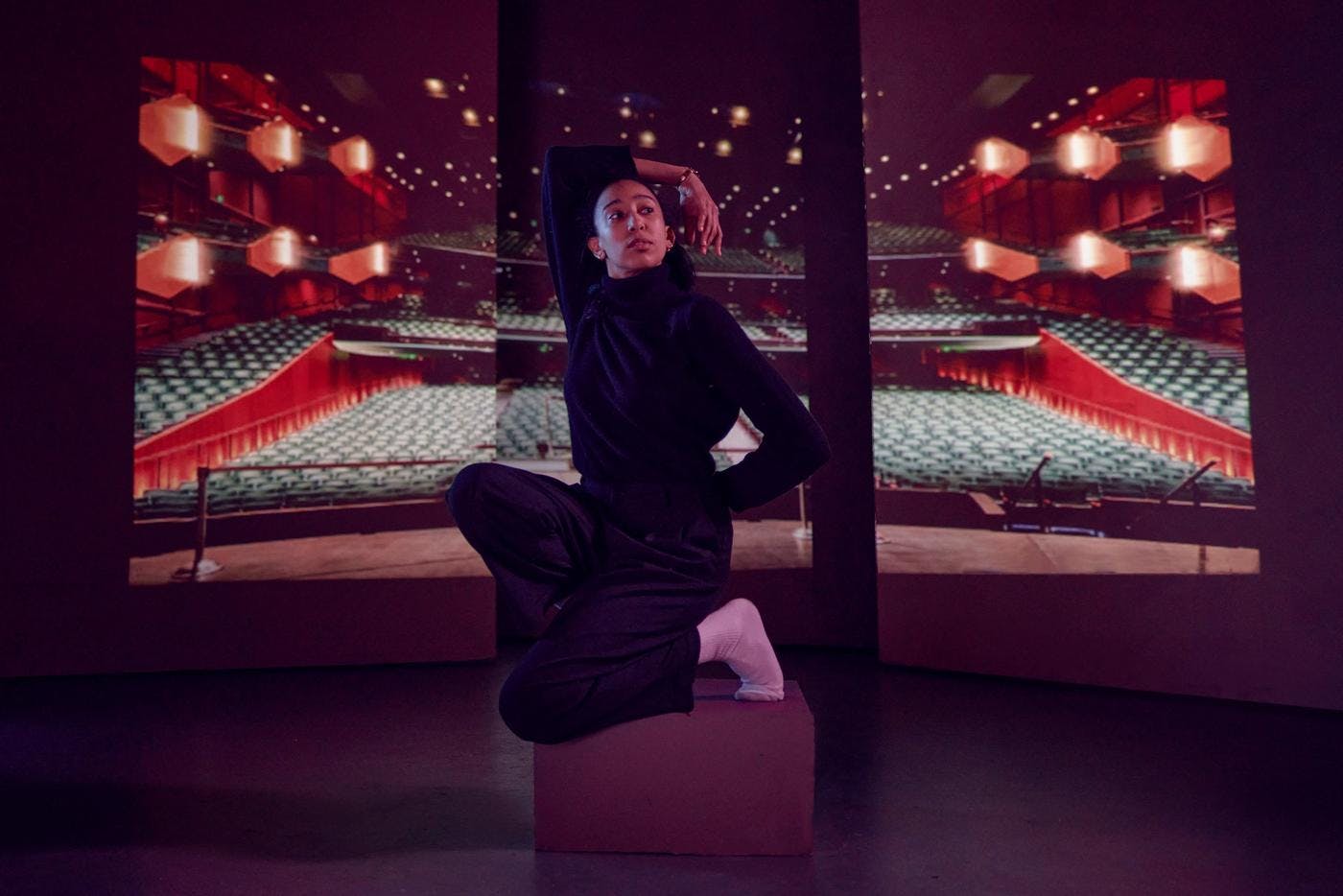
Pacific Northwest Ballet’s first Black woman soloist creates connections across disciplines.
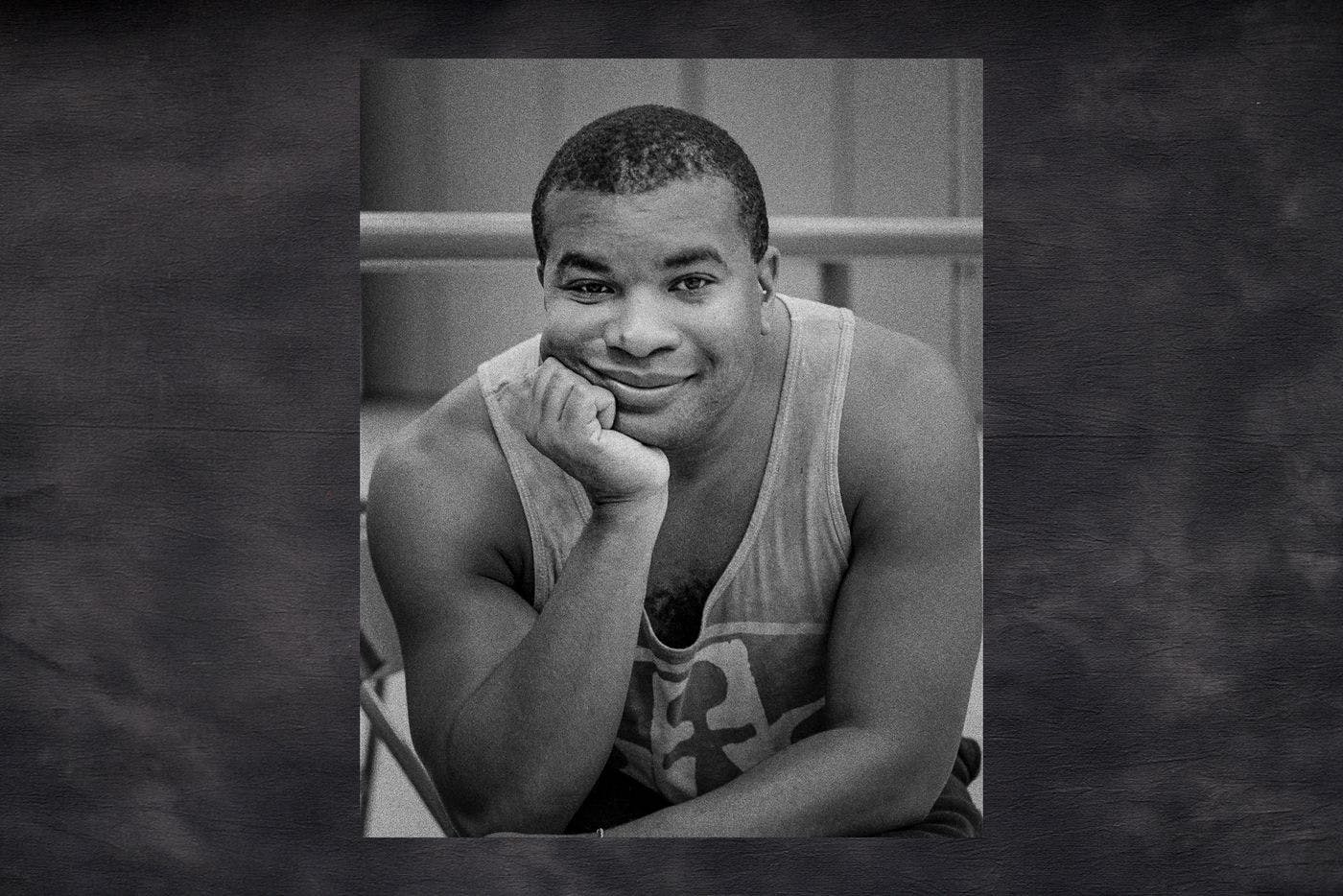
The Pacific Northwest Ballet’s first Black dancer went on to co-found a treasured performing arts school in Tacoma.
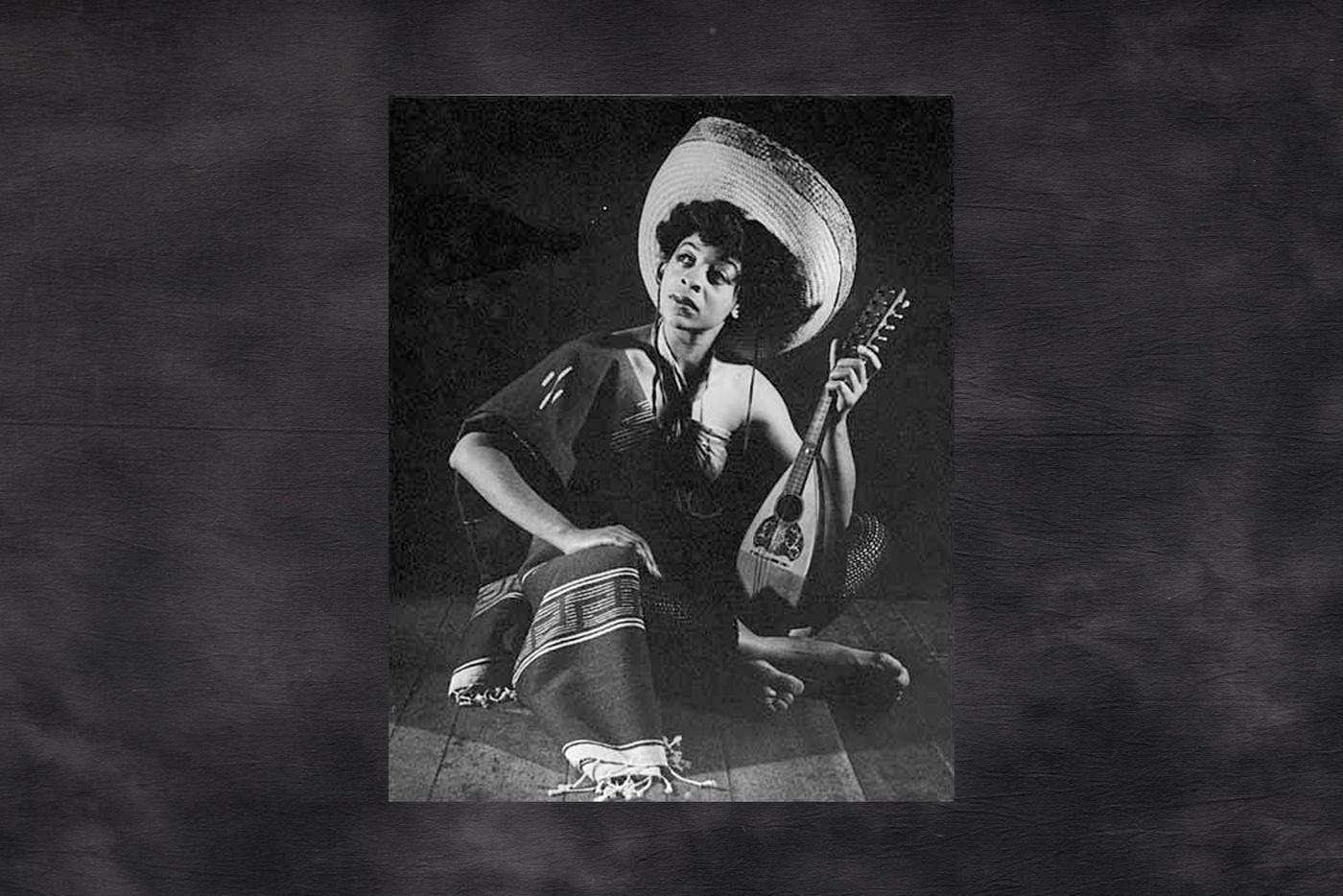
The dancer, choreographer and instructor broke barriers and influenced generations of artists.
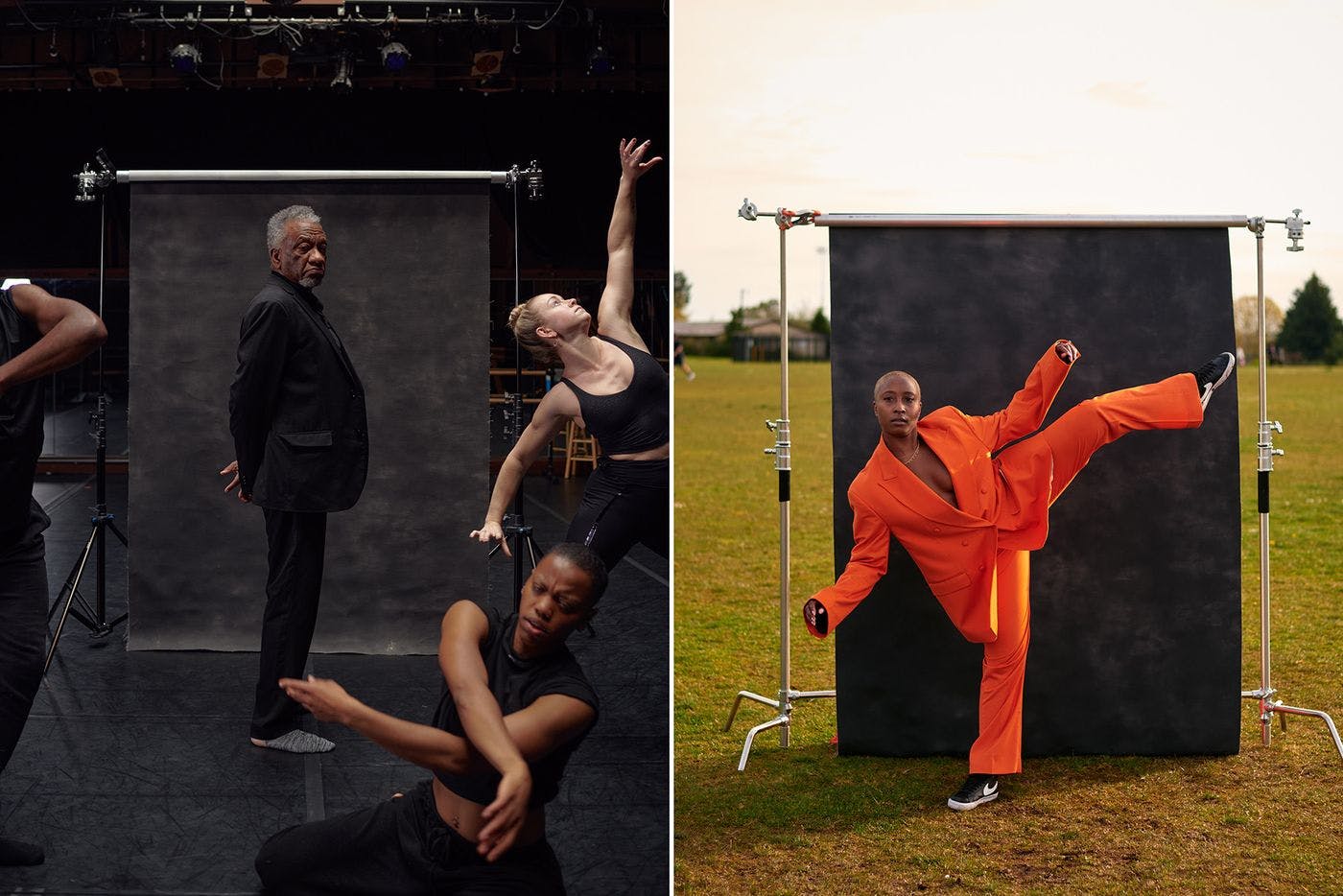
For these dancer-choreographers, social engagement takes center stage.
Thanks to our Sponsors
Your support helps Crosscut create projects like Black Arts Legacies. Learn how you can help with a one-time donation or recurring membership.
Support Crosscut